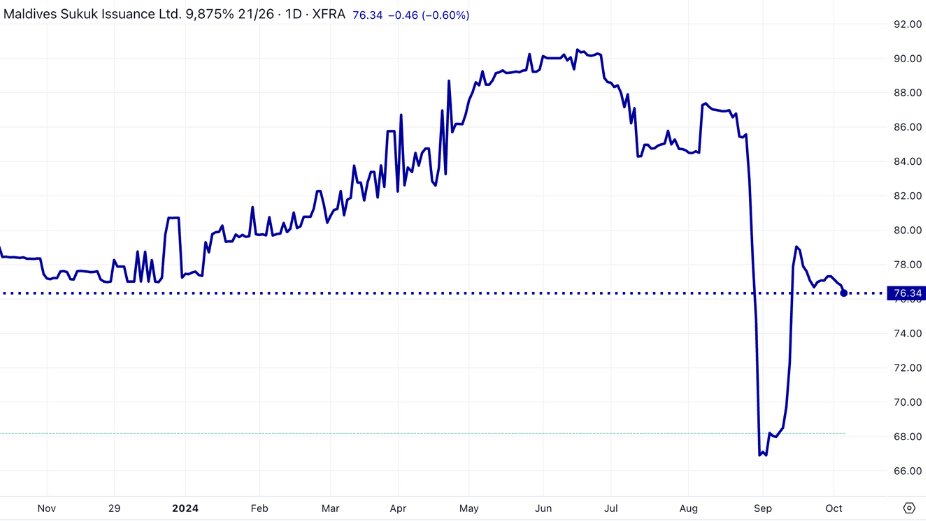
The Government of Maldives has successfully settled the latest coupon payment on its USD 500 million senior unsecured Sukuk, issued in 2021. This bond, set to mature in 2026, requires semi-annual coupon payments, and as of 7th October 2024, the government has met its obligations for the most recent payment.
According to a press release from the Ministry of Finance, the timely settlement of the Sukuk coupon illustrates the government’s dedication to honouring its debt service commitments. “Honouring debt service payments remains a key priority for the government,” the statement read, highlighting the importance placed on meeting obligations to creditors and investors.
The Sukuk, which is structured according to Islamic financial principles, was part of a broader strategy to diversify the country’s debt portfolio. However, the Maldives has faced increasing scrutiny in recent months due to concerns over its ability to maintain foreign reserves, which have fallen to critically low levels.
Earlier this year, global rating agency Fitch downgraded the Maldives’ credit rating, raising concerns about a potential default on the Sukuk bond, which would have been the first such default by a sovereign entity on this type of Sharia-compliant debt. With external debt service projected to rise to over USD 1 billion by 2026, analysts have been watching closely to see how the Maldives manages its financial obligations.
The successful settlement of the October coupon payment offers some reassurance to international investors, though questions remain about the country’s long-term ability to service its debt. Foreign reserves have been strained as the Maldives struggles with high external debt repayments, exacerbated by global inflation and the heavy import demands of the tourism-dependent economy.
In historical context, the Maldives’ entry into the global Sukuk market represented a significant step in testing the appeal of Islamic finance for debt-burdened economies. Sukuk bonds have become an important financial tool worldwide, especially in Gulf Cooperation Council (GCC) countries, and the Maldives’ ability to meet its payment obligations may impact the broader Sukuk market’s reputation.
For now, the government’s focus remains on maintaining stability and managing its external debt burden, while continuing to explore alternative financial solutions, including green bonds and potential currency swap agreements with its bilateral partners. As the island nation moves forward, global investors will be closely monitoring how the Maldives navigates its ongoing fiscal challenges.












